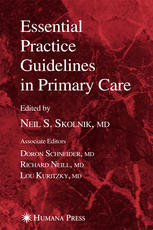

Most ebook files are in PDF format, so you can easily read them using various software such as Foxit Reader or directly on the Google Chrome browser.
Some ebook files are released by publishers in other formats such as .awz, .mobi, .epub, .fb2, etc. You may need to install specific software to read these formats on mobile/PC, such as Calibre.
Please read the tutorial at this link: https://ebookbell.com/faq
We offer FREE conversion to the popular formats you request; however, this may take some time. Therefore, right after payment, please email us, and we will try to provide the service as quickly as possible.
For some exceptional file formats or broken links (if any), please refrain from opening any disputes. Instead, email us first, and we will try to assist within a maximum of 6 hours.
EbookBell Team

4.0
86 reviewsWisdom is the principal thing; therefore get wisdom and with all thy getting get understanding. —Proverbs 4:7 In addition to wisdom, physicians need information—in many different settings—when learning new and reviewing previously learned material, during case conferences, and at the point-of-care while taking care of patients. Num- ous studies have shown that physicians regularly encounter questions that need an answer while they are seeing patients (1). Unfortunately, only about one-third of those questions are eventually pursued to find an answer, likely because of the difficulty of finding answers and the time constraints under which physicians find themselves (2–4). It is important to understand that when information is readily available, physicians utilize that information, and that information impacts on patient care and can alter the clinical decisions that occur (5–7). National clinical guidelines have been increasingly recognized as a potential way of improving the quality of medical care by giving physicians clear, eviden- based guidance on how to treat complex diseases where an abundance of lite- ture may exist. The evolution of medical knowledge proceeds along a predictable route. It starts with careful observation. Next comes the generation of hypotheses. The hypotheses are then tested through studies. These studies are eventually synt- sized into evidence-based guidelines developed through a rigorous process that includes a comprehensive review of the literature combined with expert opinion.